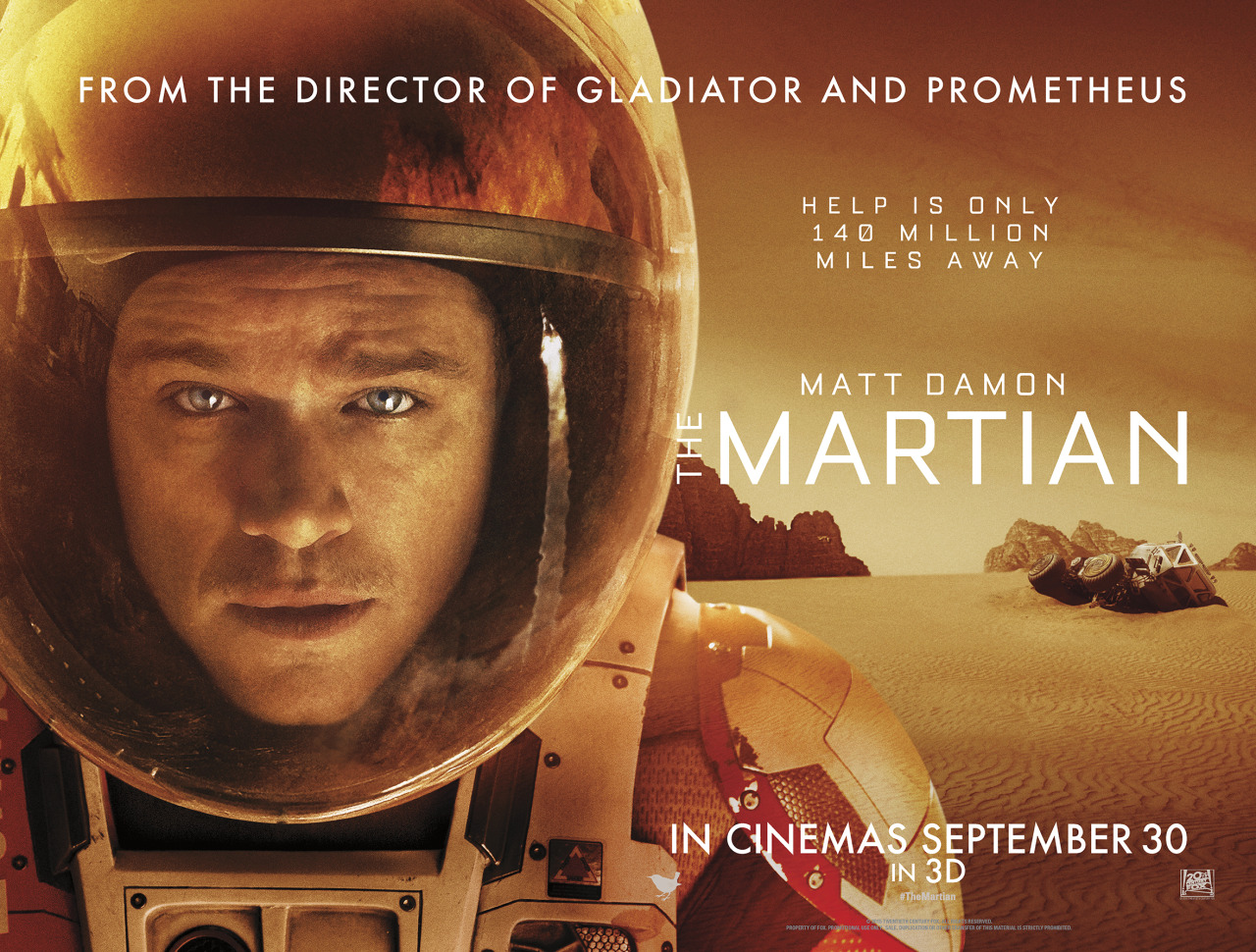A funny list of things that happen

Ridley Scott made his name, certainly in SF circles, by directing two unsentimental, credible, dystopian movies in that genre, released in 1979 and 1982. While neither was exactly an art-house movie, both Alien and Blade Runner have a seriousness about them, and present their characters’ experiences with a conviction, that stops them from dating, although the ageing of their techno-props has imbued them with an increasingly retro-futurist vibe. In my experience, they’re two of the best science-fiction films ever made. Absolutely nothing he has directed subsequently has even come close. The Martian is a feel-good survival flick, a family-friendly commercial diversion, and it seems unfair to compare it to the films mentioned above, as Scott is plainly a different director now, so I won’t. I enjoyed it a great deal.
For the most part the film works well as science-fiction. Considerable efforts have been made to create a convincing visual and dramatic representation of the technical aspects of a manned Mars mission. There are occasional lapses, but for the most part nothing that will trouble a well-informed but relaxed viewer. It’s at moments of high dramatic tension that things tend to get compressed – technical credibility is sacrificed for narrative pacing, and problems are solved with unlikely rapidity. But again, the solutions are plausible ones. There is enough common knowledge of space travel nowadays that it seems worthwhile to film-makers to base their work, at least loosely, on techniques employed in the real world, and seems like a risk to depart from them too extravagantly. Scott has demonstrated a willingness to ignore such constraints entirely if he thinks he can get away with it, as he did in the execrable Prometheus, but in The Martian, which is predicated on the same technical-crisis-procedural formula as Apollo 13, it makes sense for him to maintain some kind of technical coherence.
The film’s greatest weakness is its lack of dramatic tension. There is always a question about how Matt Damon’s character will survive, but never any sense that he might not. A degree of risk attaches to some of the supporting cast as they prepare to assist him, but not a great deal, and it is not consummated. To a certain extent, this movie is a list: it’s a list of the things that happen to an astronaut between being marooned and being rescued, and its plot is simply the axis along which the list is inscribed. What makes it engaging despite its fundamental predictability, is Damon’s performance, much of which takes the form of video logs recorded while out of touch with Earth. His character is a likeable, plucky and somewhat irreverent protagonist, whose observations or turns of phrase are often out-and-out funny – an enjoyable contrast to the resolutely straight face worn by Apollo 13. This film does not take its place in the pantheon of great SF movies beside Scott’s first two contributions to the genre, but then, it clearly wasn’t supposed to. It was intended to entertain, and it succeeds.